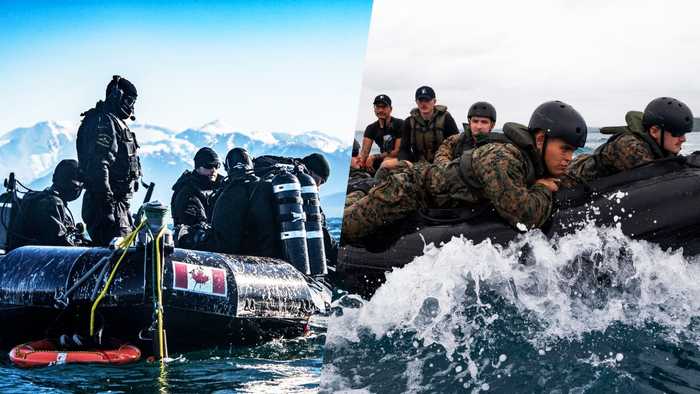Published 15:45 IST, December 23rd 2024
Russia, Iran, and North Korea Unite Prompting U.S. Special Forces Prepare for Next-Gen Challenges
This realignment of focus marks a critical evolution in U.S. defence policy, positioning SOF as a cornerstone of conflict prevention and global security.
- Defence
- 3 min read
Washington D.C. — The Pentagon is emphasizig the crucial role of Special Operations Forces (SOF) in preventing conflicts. The recent development comes as adversaries of the United States strengthen their alliances and influence operations across the globe. This shift underscores the increasing complexity of global threats that demand innovative strategies from the SOF community.
At a recent event hosted by the Center for a New American Security, Christopher Maier, the outgoing assistant secretary for Special Operations-Low-Intensity Conflict, highlighted the evolving role of SOF in the competition and crisis phases that precede armed conflict.
“Progress in recent years has been expanding that aperture to look at competition and crisis as warfighting challenges,” Maier stated. He emphasized the necessity of SOF operations in unconventional contexts, breaking away from traditional assumptions that view war solely through direct combat.
Adversarial Alliances Intensify
The U.S. faces increasingly complex threats as adversarial nations forge alliances across multiple fronts. Army Gen. Bryan Fenton, head of Special Operations Command, described a "convergence" of adversaries during the Reagan National Defense Forum earlier this month.
The alignment of forces includes examples such as North Korean troops fighting alongside Russia in Ukraine, Iranian personnel training Russian forces, and China's indirect contributions to Moscow’s war efforts.

“This is not just Russia fighting Ukraine,” Fenton said. “It’s Russia, backed by Iranian drones, North Korean personnel, and indirect Chinese contributions.”
The convergence extends beyond state actors. Long-standing partnerships between Iran and groups like Hamas, Hezbollah, and the Houthis demonstrate how nation-states collaborate with non-state entities to advance geopolitical objectives. These partnerships threaten U.S. interests globally, particularly in regions like the Middle East and Europe.
Strengthening Deterrence and Preparedness
Recognizing the expanding threat landscape, SOF units are integrating innovative deterrence strategies. Exercises like the West Virginia Army National Guard’s “Ridge Runner” simulate scenarios reflective of current conflicts, such as Russia’s invasion of Ukraine. These drills, featuring personnel from multiple branches of the U.S. military, showcase how SOF troops can support local forces while preparing for irregular warfare.
Psychological operations, civil affairs, and tactical deployments are now critical components of SOF operations, shifting focus from counterterrorism to broader geopolitical competition.
Tailored Campaigning: A Strategic Imperative
Deterrence remains at the forefront of U.S. defence strategy. According to Maier, the SOF community’s role in "campaigning" is becoming increasingly important. Campaigning involves integrating military and civilian resources to preempt conflicts and stabilize regions.

The Pentagon’s shift, outlined in a 2023 report by the Center for a New American Security (CNAS), calls for region-specific strategies to counter the unique challenges posed by nations like Russia, China, and Iran. This approach links SOF capabilities with broader military and governmental efforts, ensuring a unified response to adversarial activities.
The Decisive Decade
The U.S. faces a pivotal moment in global security, with adversaries leveraging unconventional means to challenge its influence. SOF troops, equipped with versatile capabilities and a new operational mandate, are central to countering these threats. As partnerships among adversaries grow stronger, the convergence of challenges necessitates a convergence of U.S. strengths to maintain global stability.
Key Takeaways
- Adversaries like Russia, China, and Iran are intensifying partnerships with state and non-state actors.
- SOF operations now emphasize deterrence and crisis management in addition to direct combat.
- Tailored campaigning strategies align military resources with regional geopolitical needs, ensuring preparedness for evolving threats.
This realignment of focus marks a critical evolution in U.S. defence policy, positioning SOF as a cornerstone of conflict prevention and global security.
Updated 15:45 IST, December 23rd 2024